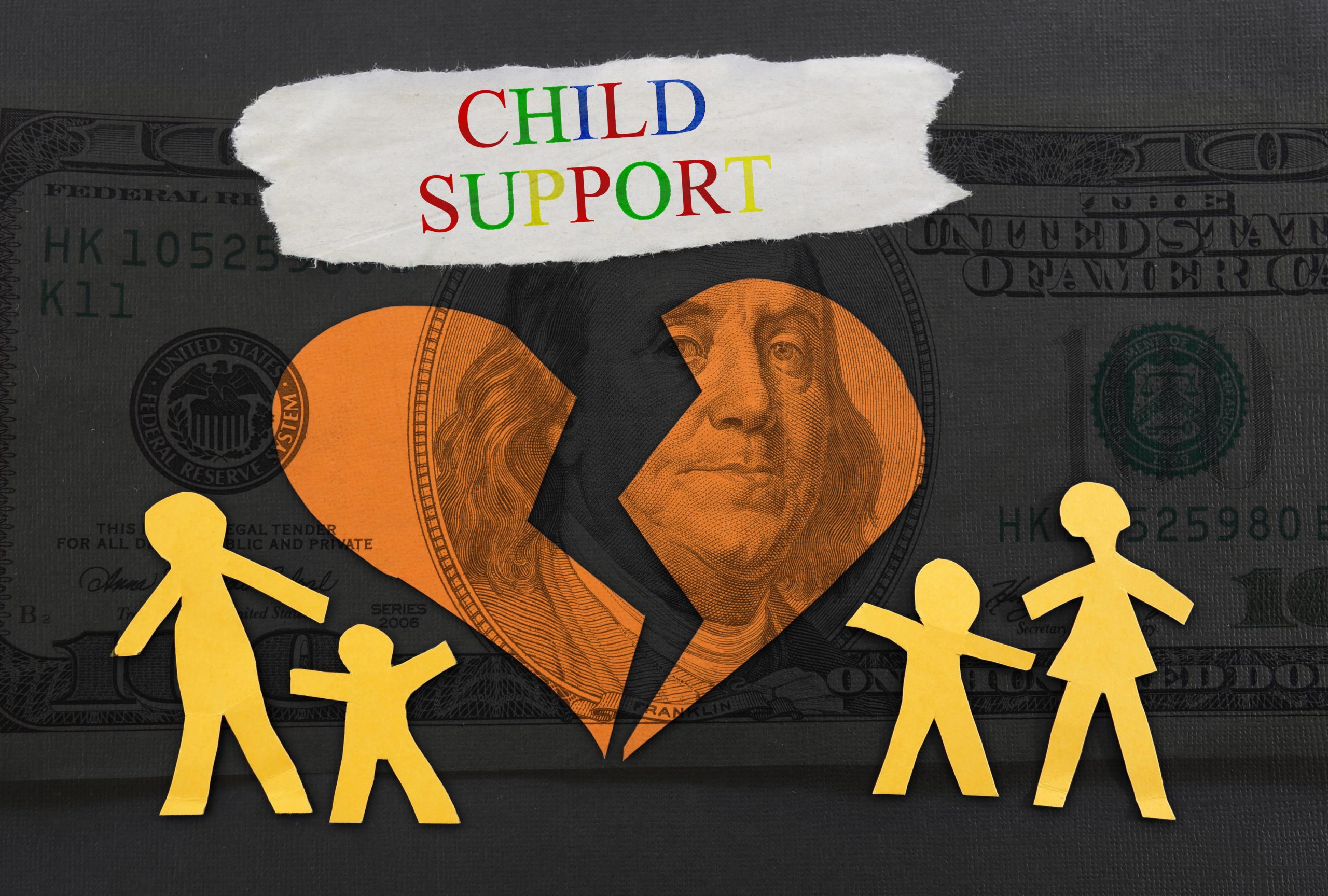 Although a divorce in California could be finalized in as quickly as 6 months, if the former spouses have children together they are stuck with each other for 18 years, and longer! The truth is that child custody and visitation issues linger long after the final divorce papers are signed. This is because as children grow older their needs and activities change. Similarly, throughout the years parents move on with their separate lives and some acquire new jobs or partners. Due to these factors, a visitation schedule that was implemented at the beginning of the case may not always work for the family a few years later. This blog will explore how parents can request a modification to the current visitation schedule exercised by their family. Continue reading
Although a divorce in California could be finalized in as quickly as 6 months, if the former spouses have children together they are stuck with each other for 18 years, and longer! The truth is that child custody and visitation issues linger long after the final divorce papers are signed. This is because as children grow older their needs and activities change. Similarly, throughout the years parents move on with their separate lives and some acquire new jobs or partners. Due to these factors, a visitation schedule that was implemented at the beginning of the case may not always work for the family a few years later. This blog will explore how parents can request a modification to the current visitation schedule exercised by their family. Continue reading
Articles Posted in Divorce Advice
There’s No Place Like Home…Or is There?
Making headlines recently, a 26 year old man was arrested after punching his mother in the face during a dispute about toilet paper. A few months ago this news likely would not have even made the headlines. The state of our world as we know it has drastically changed and headlines, like this one, are becoming more common place.
At first glance this headline might appear amusing or even bring up flashbacks to that episode of Seinfeld when Elaine’s bathroom “stall-mate” just could not “spare a square.” In reality, the underlying issues being addressed in this caption are much more severe than they may at first seem. What is the issue? Domestic violence and its’ escalation amid the COVID-19 pandemic.
What is domestic violence? Continue reading
Child Support When Both Parents Care for the Child Equally
The other day I was asked, “Why do I need to pay child support to my ex-wife if we care for our children equally?” This is a great question that requires some understanding of both California law and public policy. At first blush it may seem unreasonable and unfair that one parent must pay the other parent child support even though both parents equally care, house, feed, and pay for their children’s livelihood and well-being.
Let’s start by looking at California Family Code section 4053, which is the statute that provides courts with overarching principals to consider when implementing a child support order. This statues states, in part, that “a parent’s first and principal obligation is to support the parent’s minor children according to the parent’s circumstances and station in life.” (emphasis added.) The statute also states that, “the [child support] guideline takes into account each parent’s actual income and level of responsibility for the children” and that “each parent should pay for the support of the children according to the parent’s ability.” (emphasis added.) The statute also explains that child support “should minimize significant disparities in the children’s living standards in the two homes” and that “children should share in the standard of living of both parents.” (emphasis added.) Continue reading
Spousal Support and Termination
One of the hot button issues in any divorce case is spousal support. Standard questions that might float through a party’s mind include, but are not limited to, “what party will pay support?”, “how much support will I pay/receive?”, and “how long will I pay/receive support for?” This blog will focus on spousal support duration and termination. For information regarding how spousal support is calculated, please review one of our other blog posts or call our office for more information. 
In California, “except on written agreement of the parties to the contrary or a court order terminating spousal support, the court retains jurisdiction indefinitely in a proceeding for dissolution of marriage or for legal separation of the parties where the marriage is of long duration.” (See California Family Code section 4336(a)(emphasis added.) Pursuant to Family Code section 4336(b), a marriage of long duration includes any marriage (from the date of marriage to the date of separation) lasting 10 years or longer. Therefore, in California, the court generally retains jurisdiction to make spousal support orders for marriages lasting 10 years or longer. Continue reading
My Divorce is Over, Now What?
Parties in the middle of a divorce often long for that light at the end of the tunnel when they can finally say that it is over! Although it may seem like you will never reach the end, everyday parties are finalizing their divorce judgments and moving on with their lives. Once a divorce judgment has been entered with the court there are several steps that must happen at the conclusion of a case to ensure that all items are appropriately wrapped up. If you have any additional questions or concerns regarding the end of your case, you should contact your attorney immediately. Continue reading
Common Types of Discovery in a Divorce Proceeding
 Once the initial paperwork in a divorce proceeding is filed, both parties must complete what is called a “Preliminary Declaration of Disclosure.” This disclosure mainly consists of two documents, the first is the party’s “Schedule of Assets and Debts” and the second is the party’s “Income and Expense Declaration.” Just as the names imply, these forms are designed to gather information related to each parties’ assets, debts, income, and expenses. In addition to being mandatory, these disclosures are due early on in the case and are extremely important as they will be the framework for which a settlement, if possible, is reached. Continue reading
Once the initial paperwork in a divorce proceeding is filed, both parties must complete what is called a “Preliminary Declaration of Disclosure.” This disclosure mainly consists of two documents, the first is the party’s “Schedule of Assets and Debts” and the second is the party’s “Income and Expense Declaration.” Just as the names imply, these forms are designed to gather information related to each parties’ assets, debts, income, and expenses. In addition to being mandatory, these disclosures are due early on in the case and are extremely important as they will be the framework for which a settlement, if possible, is reached. Continue reading
Modifying a Visitation Schedule
Although a divorce in California could be finalized in as quickly as six months, if the former spouses have children together they are stuck with each other for 18 years, and longer! The truth is that child custody and visitation issues linger long after the final divorce papers are signed. 
This is because as children grow older their needs and activities change. Similarly, throughout the years parents move on with their separate lives and some acquire new jobs or partners. Due to these factors, a visitation schedule that was implemented at the beginning of the case may not always work for the family a few years later. This blog will explore how parents can request a modification to the current visitation schedule exercised by their family.
What Happens if the Parties Have a Change of Heart?
In many ways, a divorce can seem, and typically is, final. It requires the filing of a judgment, a judge’s signature, and a marriage that is no longer the same. But what happens when a party files for divorce and then changes his or her mind? Or, what happens when a couple finalizes their divorce and then reconciles? This blog will explore the consequences of these non-traditional relationships.
First, let’s consider what happens when a party files for divorce but then changes his or her mind and wishes to withdraw the petition for dissolution. In California, there is a 6-month statutory waiting period before any divorce can be finalized- and this scenario is exactly why. Sometimes a couple is going through a rough patch and a spouse will file for divorce prematurely. After discussing and working on their relationship the couple no longer wants to go through with their divorce. So, what happens? Continue reading
What is an Ex Parte Hearing?
It is no secret that the San Diego Family Law Courts are overutilized, overworked, and overbooked. When a party files a motion with the court it can often take several months, or longer, to get a hearing date! This can be frustrating for litigants who want to move their case forward towards closure. But what happens when an emergency comes up in your case and you cannot wait months for a hearing date? Luckily, there is a procedure and solution to allow the court to hear an emergency issue within a day or two, and that is called an “Ex Parte” hearing. At an Ex Parte hearing, judges can make temporary emergency orders, when appropriate.
Pursuant to California Rules of Court, Rule 5.151(b), “[t]he purpose of a request for emergency orders is to address matters that cannot be heard on the court’s regular hearing calendar….[and] the process is used to request that the court: Continue reading
SPOUSAL SUPPORT BASICS
The infamous comedian-actor Robin Williams once said, “Divorce is expensive. I used to joke they were going to call it ‘all the money,’ but they changed it to ‘alimony.’”
Alimony, or more commonly now called spousal support, may be awarded to either spouse during the pendency of a divorce proceeding, or in some cases after Judgment has been entered. There are two types of spousal support: (1) Temporary; and (2) Permanent. Continue reading
 San Diego Divorce Attorneys Blog
San Diego Divorce Attorneys Blog





